-
Home
-
Shop
New -
Explore
-
Support
-
Track Order
Apr 07, 2023
Author:Lisa Martinez
Do you have a sneaky cat who loves to steal food?
Well, cats are known for their mischievous behavior, and one of the most common complaints among cat owners is their cat's tendency to steal food. Fortunately, there are several effective ways to prevent your cat from stealing food. In this article, we will talk about some of the possible reasons for your cat stealing food and discuss useful strategies on how to stop your cat from stealing food.
As a feline owner, you may have found yourself in a situation where your cat is constantly trying to steal food from your plate. While it may seem like a cute quirk, it can quickly turn into a nuisance or even a health hazard for your furry friend.
There are several reasons why your cat may be stealing food, ranging from natural instincts to underlying health issues. Understanding the reasons behind your cat's behavior is crucial to addressing it effectively.
Let's have a look at some reasons why is my cat stealing food:
Cats are natural hunters, and their instincts drive them to seek out food. Even if your cat has a steady supply of food, they may still be driven to hunt and steal food as the behavior of stealing food is an extension of their hunting instincts. In the wild, cats hunt for their food, and even as domesticated pets, they still have a strong instinct to seek out food.
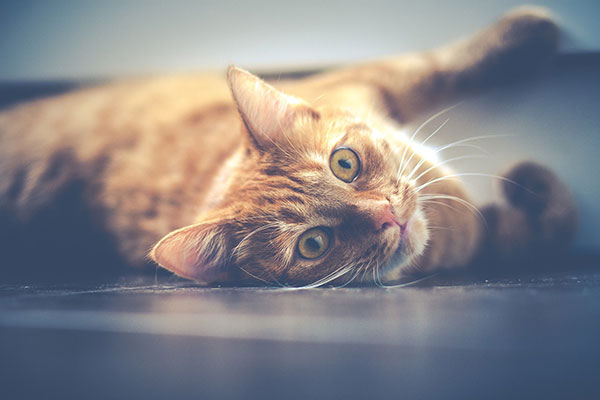
Cats require social interaction and attention from their owners. Your cat may have learned that stealing food gets them attention. They may have observed that when they try to steal food, you react by trying to stop them, which can be interpreted as positive attention.
If your cat is stealing human food, it could be a sign that they are lacking certain nutrients in their diet. Cats are obligate carnivores, and their diet should consist primarily of meat. They may be seeking out different tastes or textures to satisfy their cravings.
Cats can become bored, especially if they are left alone for extended periods. Stealing food could be a way for them to alleviate boredom, provide mental stimulation, and a sense of purpose.
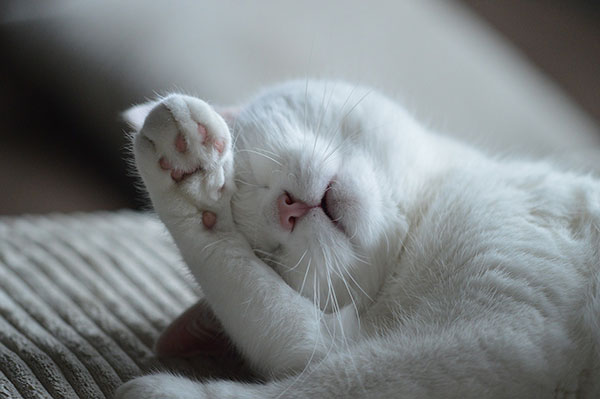
Anxiety can cause cats to engage in destructive behavior. Stealing food could be a sign of anxiety, particularly if they exhibit other signs such as excessive grooming or hiding.
If your cat is overweight, they may steal food to satisfy their cravings. Overfeeding your cat or giving them high-calorie treats could also contribute to this behavior.
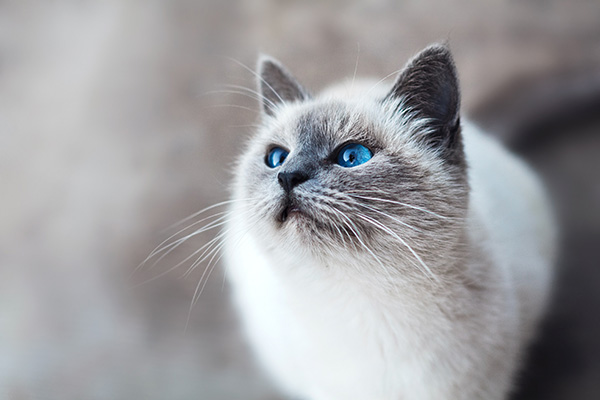
Cats are naturally curious animals and may be attracted to the smell and texture of human food. They may steal food out of curiosity and to explore new tastes.
Cats can learn bad habits if they are not disciplined appropriately. If they are regularly fed table scraps or given treats when they beg for food, they may begin to steal food as a learned behavior.
Stealing food can become a habit for some cats. If they have successfully stolen food in the past, they may continue to do so, even if they are no longer hungry or need the nutrition.
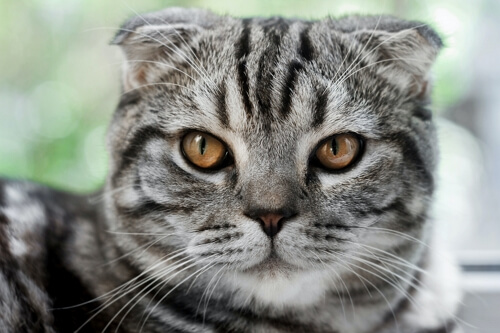
In rare cases, cats may steal food due to underlying health issues that affect their appetite or nutrient absorption. These health issues may be diabetes, hyperthyroidism, or inflammatory bowel disease. In these cases, the cat may feel hungry all the time or experience digestive discomfort that drives them to seek out more food.
Whether it's stealing food from the kitchen counter or sneaking into the trash can, a cat's tendency to steal food can be frustrating and potentially dangerous for their health. Let's explore some effective strategies to stop your cat from stealing food.
One way to stop your cat from stealing food is to avoid rewarding or treating them too often. Cats are intelligent creatures and quickly learn that certain behaviors result in rewards or treats. If your cat has learned that stealing food results in attention or treats from you, they will be more likely to continue the behavior.
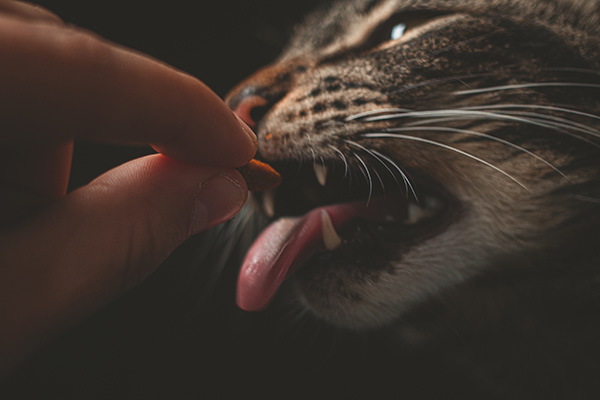
To avoid rewarding your cat for stealing food, make sure to ignore them or gently discourage the behavior. You can do this by removing the food or calmly redirecting your cat's attention to a toy or a designated food area.
Cats that are not getting the proper nutrients from their food may become more prone to scavenging and stealing food in an attempt to satisfy their hunger or nutritional needs. To prevent food stealing behavior, it's important to feed your cat a well-balanced diet at appropriate intervals throughout the day.
It's important to avoid feeding your cat table scraps or human food, as this can lead to nutrient imbalances and encourage food stealing behavior. Consult with your veterinarian to determine the appropriate amount of food to feed your cat based on their age, weight, and activity level. Also, it's crucial to ensure that they're not overeating or consuming too many calories.
One of the simplest ways to stop your cat from stealing food is to establish a regular feeding schedule. By providing your cat with consistent mealtimes, you can help regulate their appetite and reduce the likelihood of them scavenging for food throughout the day.
WOpet automatic pet feeder can be a useful tool to help regulate your cat's feeding schedule and prevent them from scavenging for food. It allows you to set up customized feeding schedules for your cat, so you can ensure that they are receiving consistent and balanced meals throughout the day.
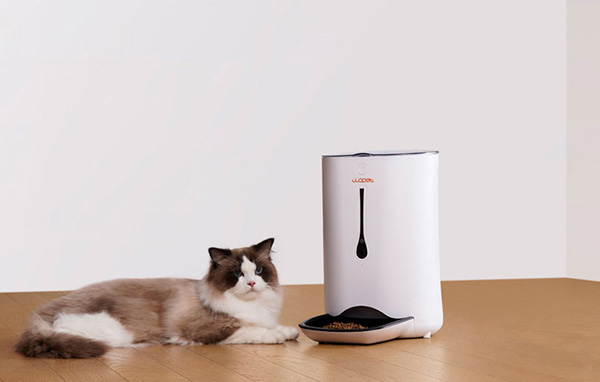
Also, the WOpet automatic cat feeder features a voice recording function, which allows you to record a personalized message for your cat that will play when it's time for them to eat. This can help reinforce positive associations with the feeder and encourage your cat to use it instead of scavenging for food.
If your cat is constantly stealing food despite your efforts to prevent the behavior, it may be time to visit your vet. Cats may engage in food stealing behavior due to underlying medical issues. Your vet can perform a thorough physical exam and run diagnostic tests to determine if there are any underlying medical issues contributing to your cat's behavior.
If a medical issue is identified, your veterinarian can develop a treatment plan to address the underlying condition and help reduce your cat's hunger and appetite. In addition to addressing any underlying medical issues, he may also be able to provide recommendations for behavioral modification techniques to discourage your cat from stealing food.
Cats are incredibly agile and can easily jump onto countertops or tables to access food. To prevent your cat from stealing food, make sure to keep all food out of reach. This means storing food in secure containers or placing it in cabinets or the refrigerator.
Also, make sure to clean up any crumbs or spills immediately to avoid tempting your cat. This will reduce the temptation to steal food and make it easier to control your cat's feeding schedule.
Cats are intelligent and curious animals that need plenty of mental and physical stimulation. If your cat is stealing food out of boredom or a lack of stimulation, providing them with interactive toys, scratching posts, and playtime can help redirect their attention and energy. You can also provide your cat with interactive feeding toys that will challenge them to work for their food, such as puzzle feeders or treat balls.
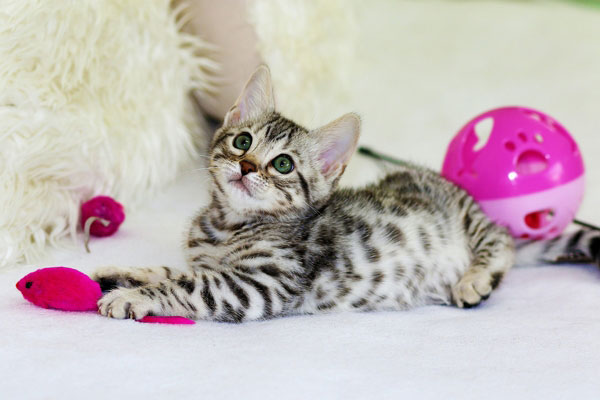
Interactive toys can keep your cat mentally stimulated and physically engaged, reducing the likelihood of boredom-driven food stealing behavior. Regular playtime with interactive toys can also help to strengthen the bond between you and your cat.
So, there are several effective strategies that you can use to stop your cat from stealing food. By establishing a regular feeding schedule, keeping food out of reach, using deterrents, providing plenty of entertainment, and addressing any underlying health issues, you can help redirect your cat's behavior and keep them healthy and happy. With patience and consistency, you can train your cat to resist the temptation of stealing food and develop more appropriate behaviors.
Popular Post

Why Does My Cat Cough After Drinking Water? 8 Potential Reasons
Mar 13, 2023
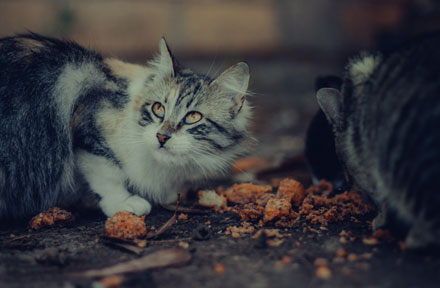
My Cat Only Eats A Little at A Time - What to Do?
Feb 27, 2023

What to Feed a Sick Dog With No Appetite? [2024 Guide]
May 16, 2023

Why Is My Dog Being Destructive All of A Sudden?
Feb 04, 2023

Do Puppies Miss Their Moms
Feb 11, 2023
Copyright © 2024 WOPET. All Rights Reserved.